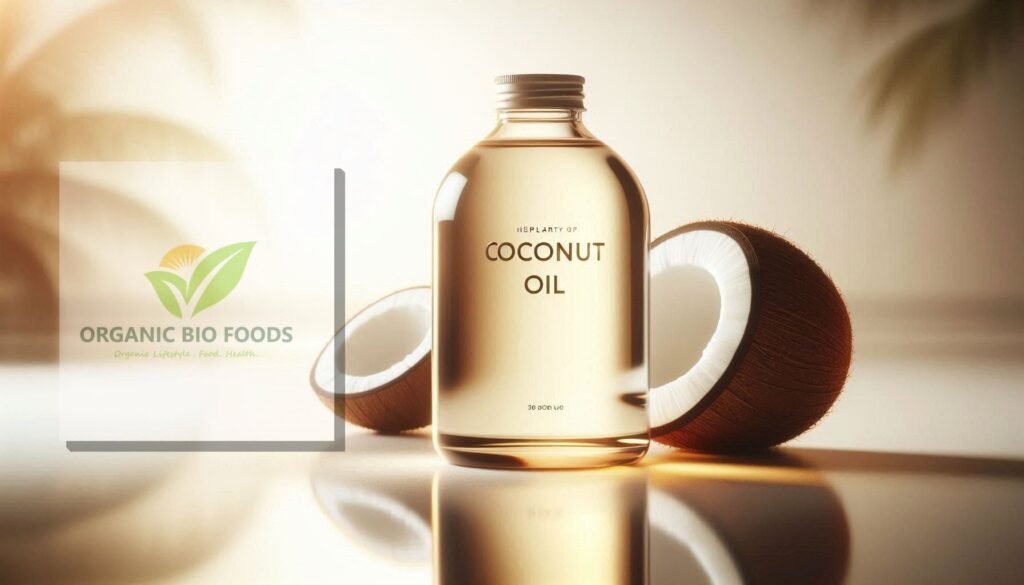Coconut oil has been the talk of the health world for several years now. Some people say it’s a miracle food, while others warn about potential risks. But what’s the truth behind this tropical oil? Is it really good for you, or is it just another fad? In this article, we’ll take a closer look at coconut oil, including its health benefits, possible drawbacks, and how it can be part of a healthy diet.
What is Coconut Oil?
Coconut oil is extracted from the meat of mature coconuts. It’s been a staple in tropical regions for centuries and is often used in cooking, skincare, and even hair care. Unlike other plant oils, coconut oil is high in saturated fats, which makes it unique in its texture and stability. But it’s not just any saturated fat—most of the fat in coconut oil comes from medium-chain triglycerides (MCTs). These are fats that are easier for the body to break down and use as energy compared to long-chain fats found in other oils.
Health Advantages of Coconut Oil
1. Supports Weight Loss
Coconut oil has gained popularity as a weight-loss aid, particularly in the keto and low-carb communities. MCTs are known to increase feelings of fullness, which may lead to eating fewer calories throughout the day. Additionally, because Medium-Chain Triglycerides MCTs are quickly converted into energy, they may boost metabolism and help the body burn fat more efficiently.
In fact, some research suggests that MCTs can help reduce belly fat over time, making coconut oil a great addition to weight management routines. It’s important to remember, though, that coconut oil alone won’t melt away fat—it should be used alongside a healthy diet and regular exercise .
2. May Improve Brain Function
Coconut oil has also been studied for its potential benefits to brain health. The MCTs in coconut oil can produce ketones, which some researchers believe may be a more efficient source of fuel for the brain, especially in people with Alzheimer’s disease according to the Alzheimer’s Society.
While the research is still in its early stages, some studies suggest that consuming MCTs can improve memory and cognitive function in individuals with mild to moderate Alzheimer’s. Although more research is needed, the potential brain-boosting benefits are promising .
3. Boosts Energy Levels
One of the standout benefits of coconut oil is its ability to provide a quick source of energy. The MCTs in coconut oil are easily digested and sent to the liver, where they can be quickly converted into energy. This makes coconut oil a popular choice among athletes and people on a low-carb or keto diet because it can fuel the body without spiking blood sugar.
Some studies have shown that MCTs may even increase fat burning during exercise, making coconut oil a go-to ingredient for those looking to shed extra pounds .
4. Promotes Heart Health (In Moderation)
While coconut oil is high in saturated fats, it contains lauric acid, which may have heart-health benefits. Lauric acid can help raise HDL cholesterol (the good kind) while lowering LDL cholesterol (the bad kind). This means that coconut oil may help balance cholesterol levels, which is important for heart health.
However, this benefit comes with a caveat—coconut oil should be used in moderation. Too much saturated fat, even from coconut oil, could still pose risks to heart health. So, while it may boost your HDL levels, it’s best to use it as part of a balanced diet .
5. Improves Skin and Hair Health
Beyond its dietary benefits, coconut oil is a popular beauty product. Many people use it as a natural moisturizer for their skin because it’s rich in fatty acids and can help lock in moisture. Coconut oil also has antibacterial and antifungal properties, which makes it useful for treating minor cuts or acne. Some people even use it to soothe skin conditions like eczema.
Coconut oil can also work wonders for hair. It penetrates the hair shaft, reducing protein loss and leaving hair softer, shinier, and more manageable. Whether used as a hair mask or scalp treatment, coconut oil is a go-to product for people looking to improve the health of their hair .
Health Disadvantages of Coconut Oil
1. High in Saturated Fats
One of the biggest concerns with coconut oil is its high saturated fat content. While the MCTs in coconut oil are considered healthier than long-chain fats, coconut oil is still about 90% saturated fat. For years, health experts have advised limiting saturated fat because it can raise LDL cholesterol, which is linked to an increased risk of heart disease.
In fact, the American Heart Association (AHA) has cautioned against consuming too much coconut oil, stating that it may raise LDL cholesterol levels similarly to butter or beef fat. If you have a history of heart disease or high cholesterol, it’s important to use coconut oil sparingly .
2. Calorie-Dense
Coconut oil is extremely calorie-dense, containing about 120 calories per tablespoon. While it can offer several health benefits, overusing it could lead to weight gain, especially if you’re not mindful of portion sizes. If you’re adding coconut oil to your diet, make sure to account for its calories and adjust other aspects of your diet accordingly.
3. Potential for Allergic Reactions
Though coconut oil allergies are rare, they do exist. Some people may experience an allergic reaction when using coconut oil on their skin or eating it. If you notice any signs of a rash, itching, or swelling after using coconut oil, stop using it and consult with a doctor. People with tree nut allergies may be more likely to develop a sensitivity to coconut, so it’s important to approach it with caution.
How to Use Coconut Oil in Your Diet
If you’re thinking about adding coconut oil to your diet, here are some easy ways to incorporate it:
- Cooking: Coconut oil has a high smoke point, which makes it a great option for sautéing or frying. You can also use it in baking as a substitute for butter or vegetable oil.
- Smoothies: Add a tablespoon of coconut oil to your morning smoothie for an energy boost.
- Salad Dressings: Use melted coconut oil as a base for salad dressings, especially for tropical-inspired salads.
- In Coffee: Some people like to blend coconut oil into their coffee for a creamy texture and to get the benefits of MCTs. This is popular in keto and bulletproof coffee recipes.
- Skin and Hair Care: If you’re not ready to add coconut oil to your meals, you can still enjoy its beauty benefits by using it as a natural moisturizer or hair treatment.
The Bottom Line: Should You Use Coconut Oil?
Coconut oil offers a wide range of health benefits, from boosting energy and supporting heart health to improving skin and hair. However, it’s also high in saturated fats and calories, which means it should be used in moderation. The key to enjoying coconut oil’s health benefits without the drawbacks is balance.
While coconut oil can be a useful addition to a healthy diet, it’s not a cure-all, and it’s important to focus on overall dietary and lifestyle habits. Whether you’re using it for cooking or as a beauty treatment, coconut oil can definitely be part of a balanced, healthy lifestyle.
Sources:








